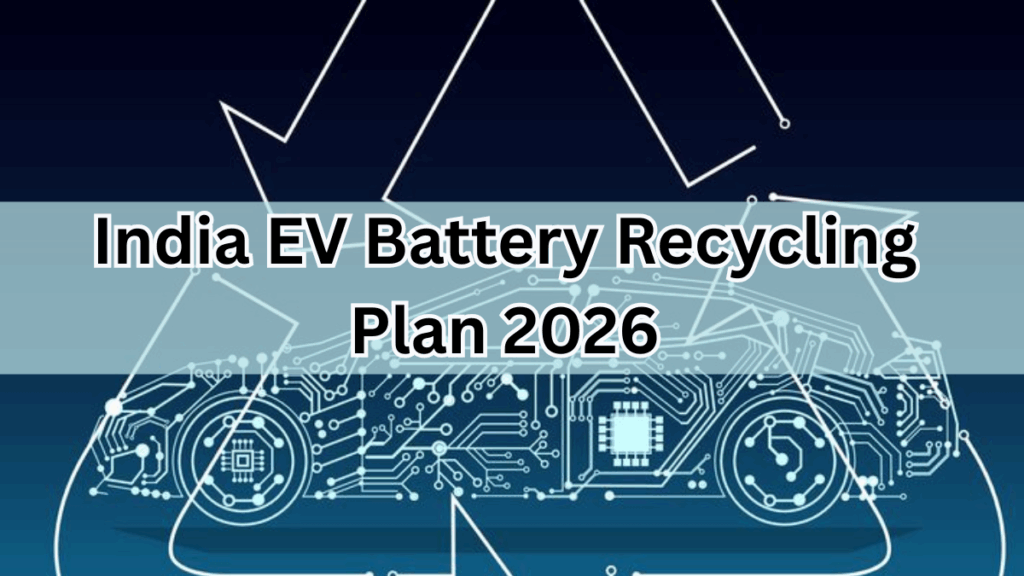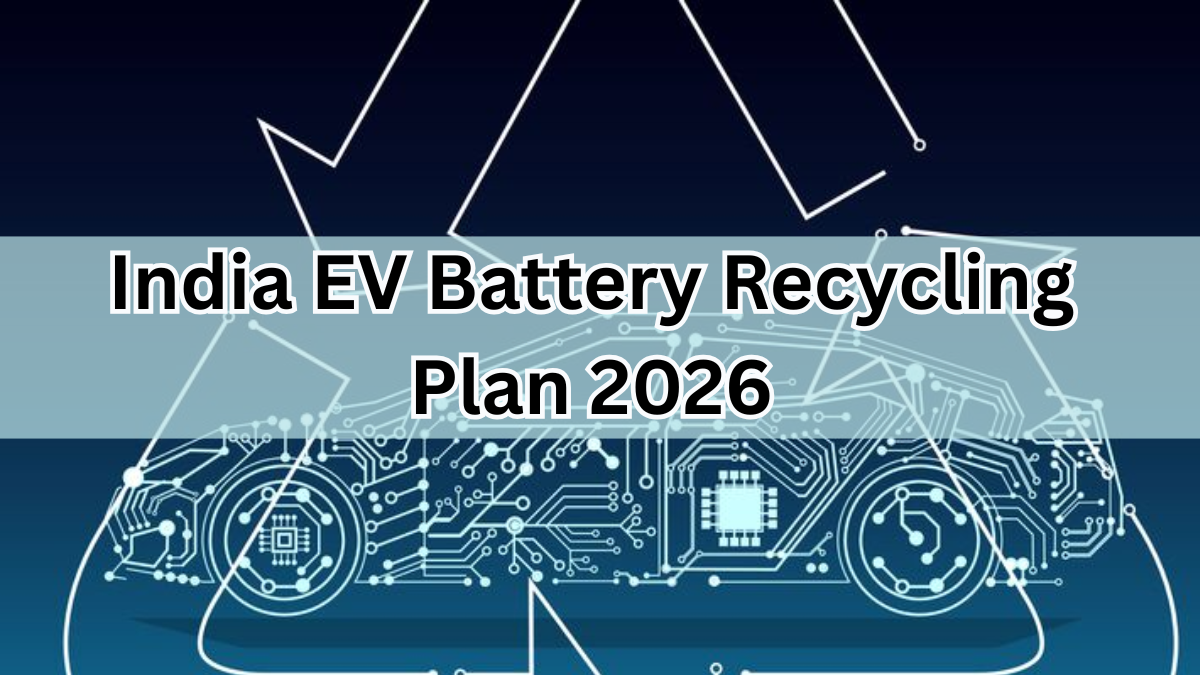As India’s electric vehicle (EV) industry continues to grow rapidly, attention is turning to a critical aspect of sustainability: what happens to EV batteries once their lifecycle ends? The India EV Battery Recycling Plan 2026 addresses this concern with a structured policy aimed at responsible disposal, reuse, and recycling of EV batteries.
This plan is a key step in promoting EV battery reuse in 2026 and ensuring that India’s green mobility drive remains truly eco-conscious.

Why This Plan is Essential?
The shift to electric mobility brings a challenge—how to safely manage the surge in used lithium-ion batteries. These batteries, if not recycled properly, can cause environmental and health hazards.
The India EV Battery Recycling Plan 2026 focuses on:
-
Promoting responsible battery disposal
-
Encouraging recycling and reuse of battery materials
-
Reducing hazardous waste in landfills
-
Creating a circular green economy
Key Guidelines Under the Recycling Policy India
The Ministry of Environment, Forest and Climate Change has outlined several mandatory actions under the 2026 plan.
Highlights of the Guidelines:
| Focus Area | New Guideline (2026) |
|---|---|
| Producer Responsibility | EV battery makers must create take-back and recycling programs |
| Recycling Authorization | Only certified recycling centers can handle battery disposal |
| Material Recovery Targets | Mandatory extraction of lithium, cobalt, and other key materials |
| Battery Passport | Each battery must have a digital ID for tracking and reuse history |
| Transport Norms | Safe transport and handling of end-of-life batteries is required |
These new rules form the foundation of the EV battery recycling policy India will implement nationwide by 2026.
What EV Owners Need to Know
If you own an EV, the India EV Battery Recycling Plan 2026 brings clearer options and safer processes for discarding used batteries. You may also benefit from innovative reuse options.
Consumer Benefits:
-
Safer, regulated channels for disposal
-
Potential value recovery from old batteries
-
Participation in exchange and take-back schemes
-
Greener options for battery reuse in solar or backup systems
Impact on Industry and Stakeholders
This policy is not just about disposal—it’s about transforming how EV batteries are treated across their lifecycle.
Who Benefits and How:
| Stakeholder | Impact |
|---|---|
| Battery Makers | Reduced costs by recovering rare materials |
| EV Manufacturers | Ability to meet sustainability and compliance goals |
| Recyclers | Business growth and job creation in formal recycling industry |
| Consumers | Eco-friendly disposal and potential financial incentives |
By encouraging EV battery reuse in 2026, the plan supports job growth, material self-reliance, and improved trust in India’s EV infrastructure.
Roadblocks and Challenges
While the plan is ambitious, several challenges remain:
-
Insufficient infrastructure in smaller cities
-
Limited consumer awareness about battery disposal protocols
-
High setup costs for recycling facilities
-
Enforcement and monitoring requirements
Looking Ahead: A Greener Future
The India EV Battery Recycling Plan 2026 is a crucial move toward building a sustainable future for mobility in India. Through proper implementation, this policy aims to ensure batteries are not just used responsibly but also reused and recycled to their full potential.
By 2026, the Indian EV ecosystem is expected to evolve with stronger recycling networks, improved compliance, and greater consumer involvement.
FAQs
What is the India EV Battery Recycling Plan 2026?
It’s a policy by the Indian government that sets clear guidelines for collecting, recycling, and reusing used EV batteries to promote sustainability and reduce environmental risks.
How does the policy support EV battery reuse in 2026?
It mandates battery tracking, recovery of raw materials, and encourages repurposing used batteries for energy storage or other secondary uses.
Who is responsible for battery recycling under this policy?
Battery manufacturers, EV producers, and certified recyclers will share responsibility under Extended Producer Responsibility (EPR) provisions.
Will EV owners get incentives for returning old batteries?
Yes, the policy is expected to offer benefits like buy-back schemes, discounts on new batteries, or cash-back for handing over old batteries to authorized centers.
Click here to learn more
